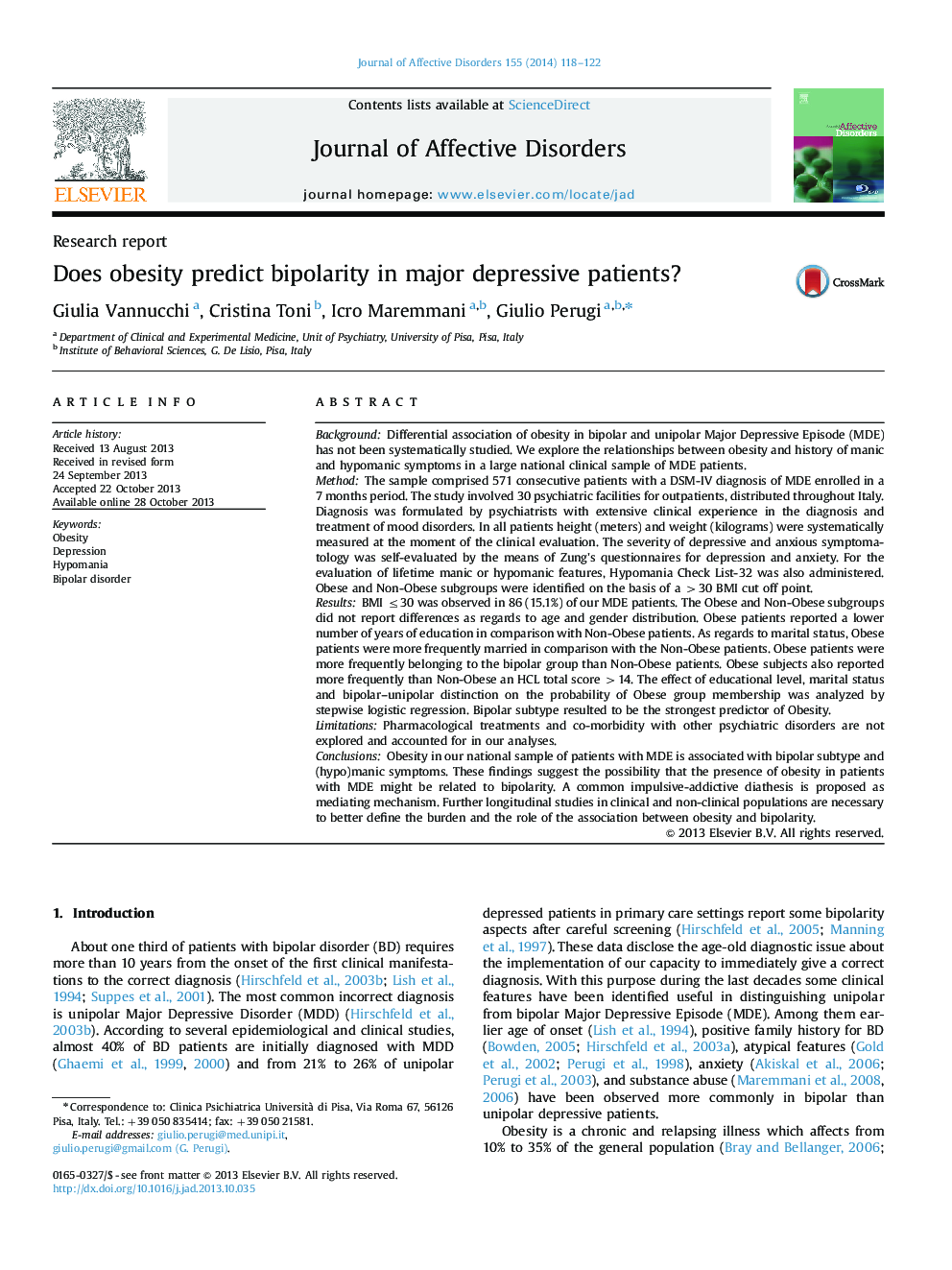| کد مقاله | کد نشریه | سال انتشار | مقاله انگلیسی | نسخه تمام متن |
|---|---|---|---|---|
| 6233305 | 1608170 | 2014 | 5 صفحه PDF | دانلود رایگان |
BackgroundDifferential association of obesity in bipolar and unipolar Major Depressive Episode (MDE) has not been systematically studied. We explore the relationships between obesity and history of manic and hypomanic symptoms in a large national clinical sample of MDE patients.MethodThe sample comprised 571 consecutive patients with a DSM-IV diagnosis of MDE enrolled in a 7 months period. The study involved 30 psychiatric facilities for outpatients, distributed throughout Italy. Diagnosis was formulated by psychiatrists with extensive clinical experience in the diagnosis and treatment of mood disorders. In all patients height (meters) and weight (kilograms) were systematically measured at the moment of the clinical evaluation. The severity of depressive and anxious symptomatology was self-evaluated by the means of Zung's questionnaires for depression and anxiety. For the evaluation of lifetime manic or hypomanic features, Hypomania Check List-32 was also administered. Obese and Non-Obese subgroups were identified on the basis of a >30 BMI cut off point.ResultsBMI â¤30 was observed in 86 (15.1%) of our MDE patients. The Obese and Non-Obese subgroups did not report differences as regards to age and gender distribution. Obese patients reported a lower number of years of education in comparison with Non-Obese patients. As regards to marital status, Obese patients were more frequently married in comparison with the Non-Obese patients. Obese patients were more frequently belonging to the bipolar group than Non-Obese patients. Obese subjects also reported more frequently than Non-Obese an HCL total score >14. The effect of educational level, marital status and bipolar-unipolar distinction on the probability of Obese group membership was analyzed by stepwise logistic regression. Bipolar subtype resulted to be the strongest predictor of Obesity.LimitationsPharmacological treatments and co-morbidity with other psychiatric disorders are not explored and accounted for in our analyses.ConclusionsObesity in our national sample of patients with MDE is associated with bipolar subtype and (hypo)manic symptoms. These findings suggest the possibility that the presence of obesity in patients with MDE might be related to bipolarity. A common impulsive-addictive diathesis is proposed as mediating mechanism. Further longitudinal studies in clinical and non-clinical populations are necessary to better define the burden and the role of the association between obesity and bipolarity.
Journal: Journal of Affective Disorders - Volume 155, February 2014, Pages 118-122
